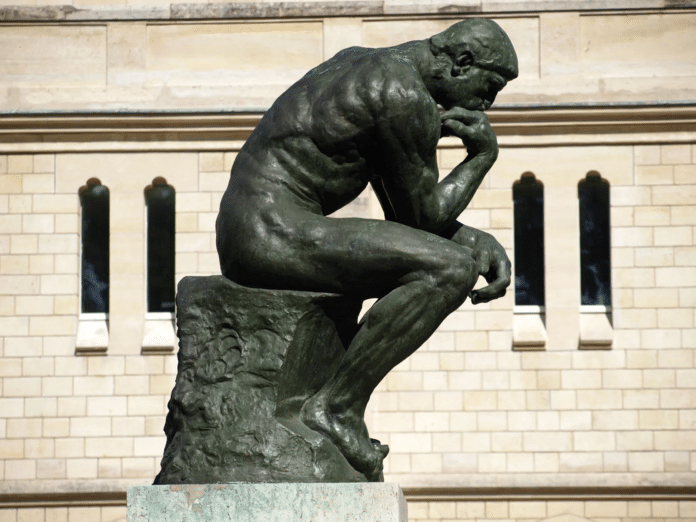Our attitudes and opinions are determined by our philosophy. From our health to our education (both formal and informal) to our perspectives on life and death more holistically, philosophy determines our consciousness.
Philosophy, though has often been considered an ancient and esoteric discipline, holds a timeless significance that continues to shape our understanding of the world and our place within it. While some may dismiss it as an abstract pursuit with no tangible impact on daily life, this article seeks to elucidate why philosophy is so important. From its role in critical thinking to its profound influence on ethics, science, and society, philosophy remains the most essential and dynamic force in our ever-evolving world.
- Critical Thinking and Problem Solving
At its core, philosophy is the art of asking questions, exploring concepts, and dissecting ideas. It encourages individuals to think critically, analyse arguments, and engage in rigorous debate. This intellectual exercise sharpens our cognitive abilities and equips us with the tools to approach complex problems in all areas of life. Whether it’s ethical dilemmas, political decisions, or scientific inquiries, the critical thinking fostered by philosophy enables us to make more informed and reasoned choices.
- Ethics and Morality
Philosophy plays a foundational role in shaping our ethical principles and moral values. Through the study of ethics, philosophers have pondered questions about what is right and wrong, just and unjust, for centuries. The works of moral philosophers like Aristotle, Kant, and Mill have provided the groundwork for discussions on human rights, justice, and the principles that underpin our legal systems. By engaging with these philosophical inquiries, society can establish a collective moral compass to guide our actions and policies.
- Scientific Inquiry and Progress
Contrary to the belief that philosophy and science are separate domains, they share a symbiotic relationship. Philosophy provides the framework within which scientific theories are developed and scrutinised. Scientific methodology, the concept of causality, and the very notion of empirical evidence are all philosophical constructs. Philosophical discussions about the nature of reality, knowledge, and the scientific method have greatly influenced the evolution of science itself. For instance, philosophers like Karl Popper have helped demarcate science from pseudoscience, advancing our understanding of the scientific process.
- Self-Reflection and Personal Growth
Philosophy encourages introspection and self-discovery. It prompts individuals to question their beliefs, values, and assumptions, leading to personal growth and self-improvement. By engaging in philosophical contemplation, individuals gain a deeper understanding of themselves and the world around them. This self-awareness can lead to greater empathy, open-mindedness, and a more fulfilling life.
- Social and Political Philosophy
Societies grapple with complex issues such as justice, equality, freedom, and governance. Philosophical discourse provides a platform for exploring these topics in depth. Social and political philosophers like John Rawls and Jean-Jacques Rousseau have laid the groundwork for contemporary debates on social justice, democracy, and the role of government. Philosophy thus contributes to the development of political ideologies and policies that shape our societies.
- Cultural and Intellectual Enrichment
Beyond its practical applications, philosophy enriches our lives by exposing us to diverse ideas, cultures, and intellectual traditions. It fosters a spirit of curiosity and wonder, encouraging us to explore the depths of human thought from ancient Greece to the present day. Through the study of philosophy, individuals can connect with the intellectual legacy of humanity and gain a broader perspective on the world.
Philosophy is not a relic of the past or an abstract exercise in academia. It is a dynamic discipline that continues to influence our understanding of the world and ourselves. From critical thinking and ethical guidance to scientific progress and personal growth, philosophy permeates every facet of human existence. It is a vital tool for navigating the complexities of modern life and a testament to the enduring importance of intellectual exploration. Embracing philosophy allows us to unlock the wisdom of the ages and chart a course toward a more thoughtful, ethical, and enlightened future.
Those who denigrate philosophy and its virtues are effectively already dead.
Jason Cridland
If you would like your interests… published, submit via https://dorseteye.com/submit-a-report/
Join us in helping to bring reality and decency back by SUBSCRIBING to our Youtube channel: https://www.youtube.com/channel/UCQ1Ll1ylCg8U19AhNl-NoTg and SUPPORTING US where you can: Award Winning Independent Citizen Media Needs Your Help. PLEASE SUPPORT US FOR JUST £2 A MONTH https://dorseteye.com/donate/







